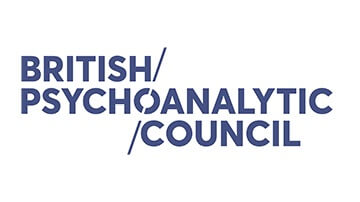
Inter-cultural psychodynamic psychotherapy (D59L, Leeds)
Develop the skills to work in a modern multi-cultural context in this qualifying psychodynamic psychotherapy course, validated by the British Psychoanalytic Council
Please note: you may see the D59L course also referred to as PCTCLM001 in communications from our application system.
About this course
This course offers a unique opportunity for you to develop your clinical psychoanalytic skills in the context of inter-cultural psychotherapy. It will provide you with the clinical experience and theoretical framework necessary for working therapeutically in the NHS. You will learn through theoretical seminars, clinical seminars, infant observation, assessment workshops, training cases and clinical supervision.
Theoretical seminars
Theory seminars will deepen and enrich your understanding of psychoanalytic theory with an emphasis on developing a theoretical framework to understand how issues of culture, race, gender and sexuality manifest in clinical work.
Clinical seminars
Clinical seminars involve presenting training cases and exploring theoretical, technical and practice issues in the context of intercultural clinical work.
Infant observation
You will observe an infant in a home setting for a minimum of three terms and make detailed recordings of your experience. These are discussed in weekly small group seminars to explore the conscious and unconscious meanings of the events observed. Infant observation takes place in the second year of training – there will be a seminar in the spring or summer term of the first year to help trainees prepare for this component of the training.
Clinical workshop
This workshop is an opportunity to consider theoretical issues relevant to the assessment, initial stages of therapy, the process of establishing therapy – working through and endings for individuals in time-limited psychotherapy, along with issues of clinical technique. You will hear presentations of cases from experienced staff and, if appropriate, you may have the opportunity to undertake a supervised assessment of your own.
Training cases
You will see two training cases once a week, one for 18 months and one for 12 months. Permission to see a second training patient must be given by the first training supervisor.
You will have fortnightly individual supervision, during term time, for both of your training cases – this runs in parallel with supervision provided at the clinical placement. Course supervisors are all senior clinicians registered with the British Psychoanalytic Council.
This course is taught in a systematic and rigorous manner by experienced clinicians in the psychoanalytic psychotherapy field. You will benefit from integrated theoretical and clinical teaching which will prepare you for high standards in independent clinical practice.
Who is this course for?
This course is for you if you have:
- previous foundation-level training in psychodynamic psychotherapy
- been actively working with patients under supervision for at least two years
- an interest in intercultural work
- a wish to develop your clinical work to the level of a qualified psychotherapist
Course details
In order to apply for this course you will need:
- an initial clinical training equivalent to our Foundations of psychodynamic psychotherapy (D58) course
- at least one year of supervised psychotherapy work with a patient
- at least two years of weekly personal psychotherapy with a BPC-accredited psychoanalytic psychotherapist or psychoanalyst
Personal suitability for the work is also an important factor that will be assessed at interview.
Please read the entry requirements and ensure you meet them all before submitting an application.
Home
£6,930 per year (2024/25)
International
£13,860 per year (2024/25)
For more information about financing your studies and your fee status, please see our fees and funding area.
Please note that course fees are subject to an annual uplift of 3% or the Consumer Price Inflation as at 1 September, whichever is the greater. At its discretion, the Trust may determine a figure between these two rates.
We are happy to offer a range of ways to pay your fees, as well as some funding for specific courses.
Assessment
Twice-yearly progress reports are submitted by teaching staff on each module of the course. The assessment and progression board usually meets three times per year and decides on all matters relating to progression and qualification. Feedback will be given to student trainees and discussed at this meeting.
Attendance
Wednesday afternoons.
Post-qualification trainees have gone on to set up their own private practice as a psychodynamic psychotherapist or gain positions in an NHS or third sector psychotherapy service.
Some have continued their ongoing development and training as a psychoanalytic psychotherapist or psychoanalyst.
Why study with us?
This course is taught in a systematic and rigorous manner by experienced clinicians in the psychoanalytic psychotherapy field.
You will benefit from integrated theoretical and clinical teaching which will prepare you for high standards in independent clinical practice.
Testimonials
Course facilitators
Validations and accreditations
This course is validated by the British Psychoanalytic Council.
Register your interest
Applications are now closed. Register your interest and be the first to hear when this course reopens.
Recommended courses
Explore courses to study beforehand
Explore courses to study next
-
 Clinical qualification
Clinical qualification 
The Tavistock adult psychoanalytic psychotherapy training (M1)

